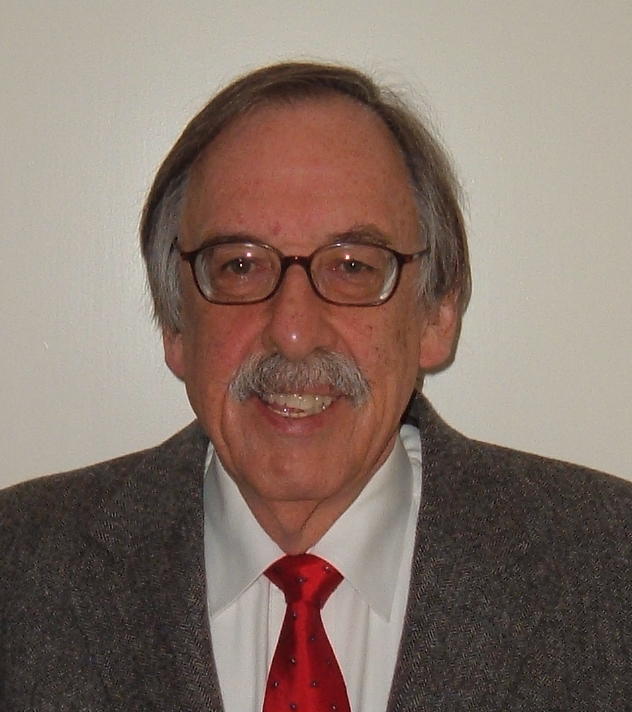You are here
2016 Doggett Prize Winner - Albert Van Helden
Albert Van Helden Awarded the 2016 LeRoy E. Doggett Prize
 The Historical Astronomy Division of the American Astronomical Society is pleased to announce that Professor Albert Van Helden is the 10th recipient of the LeRoy E. Doggett Prize for Historical Astronomy. The Doggett Prize, the history of astronomy's highest honor, is awarded biennially to an individual who has significantly influenced the field through a career-long effort. The 2016 LeRoy E. Doggett Prize awarded to Professor Van Helden recognizes:
The Historical Astronomy Division of the American Astronomical Society is pleased to announce that Professor Albert Van Helden is the 10th recipient of the LeRoy E. Doggett Prize for Historical Astronomy. The Doggett Prize, the history of astronomy's highest honor, is awarded biennially to an individual who has significantly influenced the field through a career-long effort. The 2016 LeRoy E. Doggett Prize awarded to Professor Van Helden recognizes:
- his outstanding scholarship in the history of the telescope,
- his extensive and insightful exploration of telescopic astronomy in the 17th and 18th centuries,
- his significant contributions to Galilean studies, and
- his dedicated service to the historical astronomy community and the public at large.
Van Helden is recognized as the leading authority on the history of the telescope. His scholarship is best illustrated in his magisterial monograph, "The Invention of the Telescope," in the Transactions of the American Philosophy Society, published in 1977. There, Van Helden corrected a longstanding but erroneous historical theme that identified Galileo as the inventor of the telescope. He considered a multitude of original documents with translations of primary sources in four languages. An extension of this monograph points to Van Helden's second major scholarly project, Galileo's rapid improvement of the weak (nominally 3X magnification) terrestrial telescope then spreading throughout Europe to make it suitable for astronomical observation. Van Helden's other publications, in journals such as ISIS, OSIRIS, and the Journal for the History of Astronomy, have enlarged upon these contributions, demonstrating, among other things, the limited role science played in the development of the telescope during the 17th century in contrast to the dramatic role the telescope played in the evolution of scientific understanding of the cosmos.
Van Helden's contributions include the history of telescopic astronomy in the 17th and early 18th centuries. In his second book, Measuring the Universe, he summarized the development of observational astronomy from antiquity to the end of the 18th century. His discussion of the observations and interpretations of Ptolemy, Tycho Brahe, Galileo, Huygens, Cassini, and others explains how the characteristics of the instruments available to astronomers limited their understanding of the fundamental astronomical problems of the time. In later papers on telescopic astronomy, Professor Van Helden described the process through which observational astronomy approached maturity, as well as the idiosyncrasies of each important astronomer. He demonstrated how differences in their observing practices led some, but not all, to discovery. He illuminated the conflicts among leading astronomers over questions of interpretation and authority. Taken as a whole, his papers convincingly demonstrate Van Helden's mastery of the technical as well as the social aspects of observational astronomy.
Galilean studies constitute an equally important contribution of Professor Van Helden's career. He published the first complete English translation of Galileo's Sidereus Nuncius to appear in the 20th century. Both Sidereus Nuncius and his translation of the letters passing between Galileo, Christoph Scheiner, and others in their debate on the nature of sunspots (On Sunspots in collaboration with Eileen Reeves), have been recognized for the integrity of their translation. Both books feature comprehensive interpretive introductions, comments in the text, and conclusions that ensure their accessibility. Neither book is likely to be displaced as a standard in this field of scholarship for decades to come. In other papers, Van Helden describes Galileo's career and the state of the science and culture in the community of astronomers around Galileo. Van Helden's publications on other subjects include Galileo and his work in context. Professor Van Helden's dedication to Galileo scholarship revealed itself in The Galileo Project. Although his website was intended for secondary education, it is in fact an invaluable entry point for Galilean studies on a collegiate level.
Professor Van Helden's dedication to the history of astronomy, and more broadly, the history of science, could be characterized no more effectively than by pointing to his extended participation as a member of the editorial boards of the Journal for the History of Astronomy (for 25 years and more), and ISIS (for five years). His stature within the history of science profession is acknowledged by his election as the History of Science Society's President (1998-1999).
Professor Van Helden was scheduled to present his Doggett Prize talk, "New Information about Old Telescopes," at the 227th AAS meeting in Kissimmee, Florida, on 2016 January 5. Unfortunately, he was unable to attend that meeting due to illness, and the talk was read instead by Owen Gingerich.
